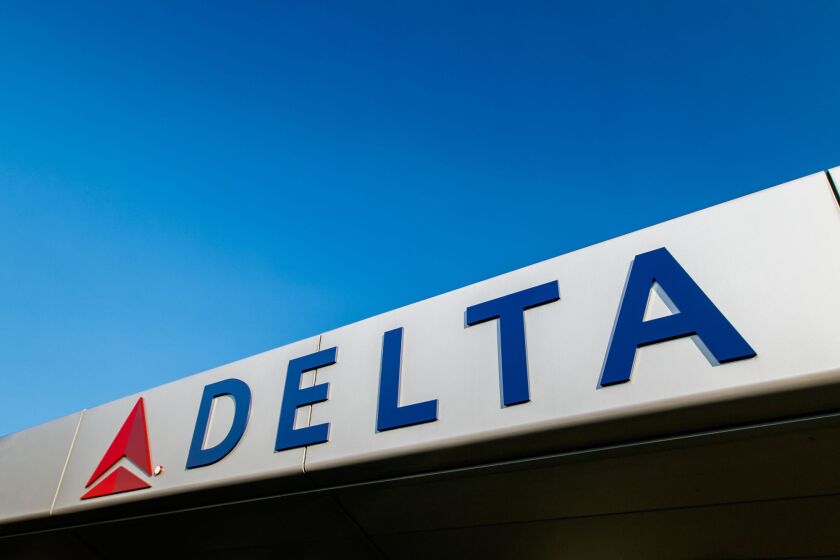There was very little that Donald Trump did during his presidency that democratic house representative Alexandria Ocasio-Cortez agreed with. There was however at least one policy enacted during that time that both supported: the decision to ban domestic airlines from stock buy-back programmes as part of its major bailout programme.
For years leading up to the pandemic, the major US airlines had been throwing cash reserves into buying back their shares. When the pandemic crushed the travel sector, those same airlines were left with very small reserves and were forced to borrow extensively from the government to rescue their businesses. The legislation that was passed, the CARES Act, provisioned for enormous loans but set a temporary ban on the share buy-back programmes.
Without singling out one airline specifically — this is an industry wide phenomenon — let’s use Delta as an example. As part of its $5.4bn bailout, the airline reached an agreement with the US Treasury on a 10 year, $1.6bn unsecured loan as well as a $3.8bn grant.
While the government was extended warranties on 1% of Delta stock over five years, the airline remains (well within its rights) way off repaying this outstanding debt.
96% of airline profits over the last decade went to buying up their own stocks to juice the price - not raising wages or other investments.
— Alexandria Ocasio-Cortez (@AOC) March 17, 2020
If there is so much as a DIME of corporate bailout money in the next relief package, it should include a reinstated ban on stock buybacks.
At the end of September, the ban on buy-backs is set to expire as per the terms of the Act and it appears likely that airlines will pick up right where they left off. “We can't do anything at the moment with respect to CARES Act limitation," said Delta CEO Ed Bastian on last month's earnings call, "so I can't provide you any specifics on that but we talk over the long term that we've got a responsibility to all constituencies, to our customers, to our employees, and importantly to our owners as well as our communities. And our owners shouldn't be forgotten about.”
Of course, this newspaper would never go so far as to suggest that a perfectly sound capital markets transaction is immoral. Investment banks serve clients first and foremost, and if that service is clearly legal then a debate about morality, which is almost never clear cut, takes second place.
But perhaps, in this instance, the airlines should think twice before exercising their legal right to a buy-back.
In the tail-end of a summer so hot that even people in the UK have had to start investing in air conditioners, for the industry that is among the biggest contributors to climate change to effectively use public money to fund buy-backs is — while strictly legal — a missed opportunity to, as the phrase went during the pandemic, build back better.
By choosing to forego the right to repurchase their own existing stock, and instead taking measures to undo some of the damage done by the pandemic, an airline like Delta would be able to significantly improve its public image. US airlines could do worse than look at ways to use their newfound fortunes to reinvest into ESG-focused strategies.
In such a competitive market, the media coverage that could come from a decision like this may well have a positive impact when it comes to customer retention and winning new business. This action might even help drive the share price up, which is after all the underlying goal of a buy-back programme.
There is a certain paradox to this. After all, the public that are the ultimate creditors for the bailout loans are also invested through pensions and retail investments in the companies themselves. It is not as simple as saying the public are being robbed blind, even if some already wealthy individuals do fare better from the trade than others when the prosperity of the company has an impact on so many.
But buy-backs are still not a good look. Given the impact of the Russian invasion of Ukraine on the price of oil and the subsequent rise in air fares, a gouge that came almost immediately after a pandemic that prevented most people from taking flights, that Delta and other airlines should be allowed to use recent gains and a renewed appetite for travel to repurchase existing shares at low prices to satisfy owners seems to disregard the airlines' place and function in the society — not just the economy — in which they operate.
If airlines have spare capital, they should be accelerating their investment in making the industry more sustainable. They have benefited from public bailouts, so should feel a public duty, at least for the time being.
This money could be better served trying to make a dent in the fight against climate change, a problem airlines perpetuate on an hourly basis.

